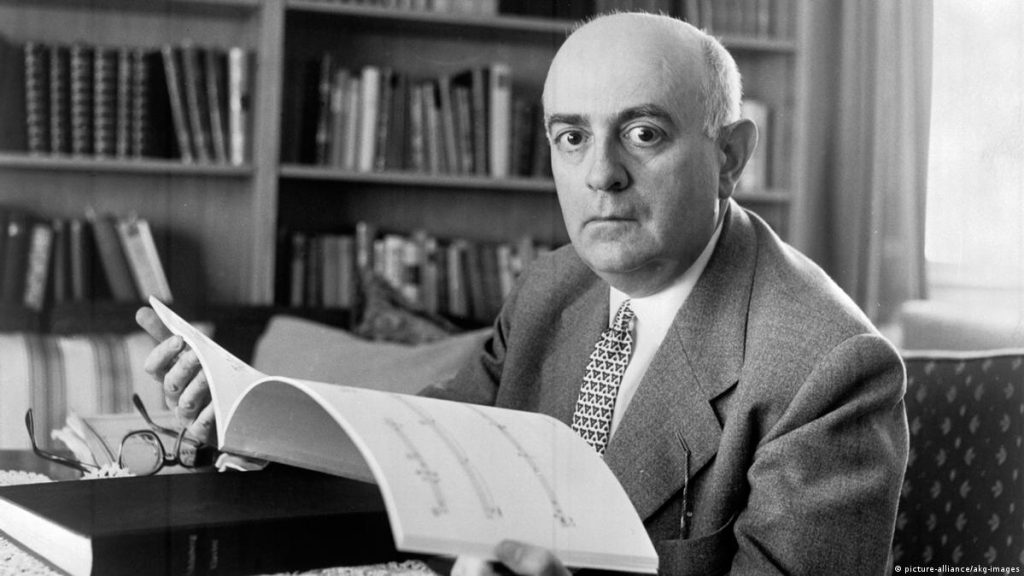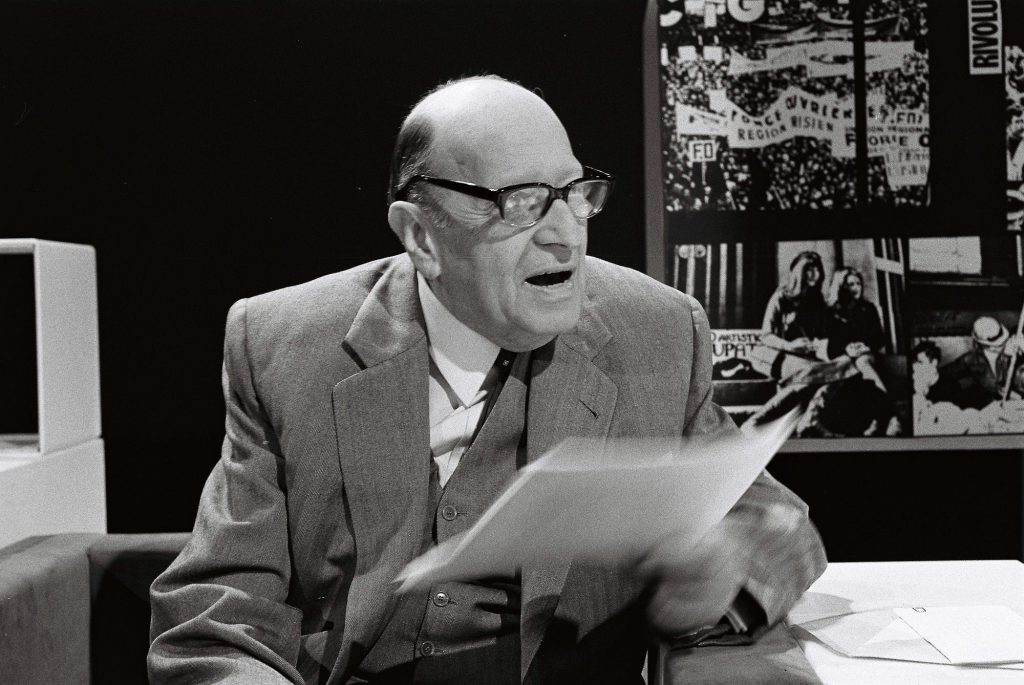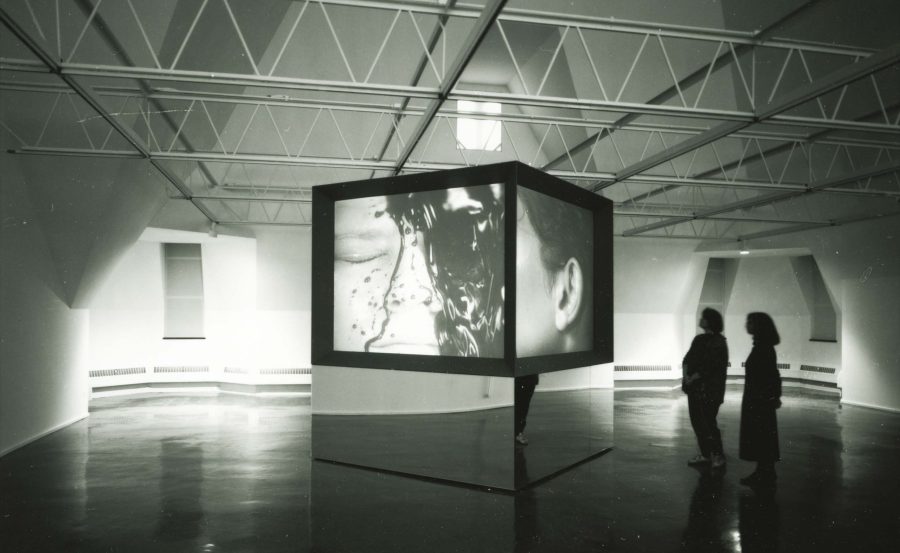WHAT IS THE CULTURE INDUSTRY
‘Culture Industry’ is a term first coined by theorists Theodore Adorno and Max Horkheimer, in their book Dialectic of Enlightenment, in 1947. The Culture Industry refers to the mass production and commercialization of cultural goods such as films, magazines, and music. Adorno and Horkheimer proposed that the goods manufactured and distributed under capitalism were being used to pacify and control our society, and that the ease of consumption of these goods may cultivate false psychological needs within ourselves.

Theodore Adorno 
Max Horkheimer
A central idea in the Dialectic of Enlightenment is that the homogenization of cultural goods is robbing us of our imagination. Adorno and Horkheimer further add that in the process of manufacturing these goods, ‘only meaninglessness is acceptable’.
Walter Benjamin’s The Storyteller reinforces these views, claiming that our ‘ability to exchange experiences’ is being taken away from us. Benjamin adds that we seldom encounter people with the ‘ability to tell a tale properly’ and that there is now ‘embarrassment all around’ when someone expresses their desire to hear a story.
RELEVANCE IN TODAY’S CONTEXT
With the rise in accessibility of social media, it is no surprise that Adorno, Horkheimer and Benjamin’s arguments are incredibly relevant in today’s context. We have been enabled to consume and indulge in media, without having any restrictions that would force us to stop. Unlike substances, we might eventually run out of money for it but ‘Netflix shows or TikTok feeds are indefatigable’ (The Guardian, 2021).
As we look at TikTok, it is one of the world’s biggest social media platforms today. It is undeniably popular, garnering at least one million active monthly users and with their short form videos gaining the attention of 66% of consumers, making it 2.5 times more engaging than longer videos (Forbes Advisor, 2023).

Undeniably, TikTok has had a significant impact on our society. The standardization of its goods and style of short form content has largely contributed to a culture of shortened attention spans and seeking instant gratification. As the platform continues to dominate, we persistently grow more and more comfortable with consuming brief and superficial content rather than having the desire to explore complex forms of creative expressions.
MY THOUGHTS ON THIS THEORY
However, I would contend that Adorno and Horkheimer’s views are pessimistic to a certain extent. It is a misrepresentation of our society to state that all we seek is instant gratification and that we are incapable of finding meaning and experience in what we consume.
Fred again.. is one artist that I would like to highlight. Today, music has become less of a message and more of a business, with its mechanically followed style and sole purpose of commercialization. Even before the ‘Culture Industry’, Adorno had been highly critical of music and its formulaic nature (Perlego) in his essays ‘On Jazz’ and ‘On Popular Music’. But I would argue that the music Fred again.. has produced carry much meaning and emotional depth, is more profound than most pieces of work that we come across today and is a testament that not all cultural goods today are manufactured under capitalism.
To conclude, generalizing Adorno and Horkheimer’s argument among everyone could seem much more straightforward, but the truth is that we still possess the gift to imagine and ability to find meaning and exchange experiences with one another.
REFERENCES
Adorno, T.W. and Horkheimer, M. (1944). Dialectic of Enlightenment. London: Verso. Available from https://www.marxists.org/reference/archive/adorno/1944/culture-industry.htm.
Benjamin, W. and Zohn, H. (1963). The Story-Teller: Reflections on the Works of Nicolai Leskov. Chicago Review, 16 (1), 80. Available from https://doi.org/10.2307/25293714.
Neilson, T. (2022). What is The Culture Industry? | Summary, Analysis & Examples. Perlego Knowledge Base. Available from https://www.perlego.com/knowledge/study-guides/what-is-the-culture-industry/.
Walton, S. (2017). Theory from the ruins. Aeon. Available from https://aeon.co/essays/how-the-frankfurt-school-diagnosed-the-ills-of-western-civilisation.
Waters, J. (2021). Constant craving: how digital media turned us all into dopamine addicts. The Guardian. Available from https://www.theguardian.com/global/2021/aug/22/how-digital-media-turned-us-all-into-dopamine-addicts-and-what-we-can-do-to-break-the-cycle.
Wong, B. (2023). Top Social Media Statistics And Trends Of 2023 – Forbes Advisor. www.forbes.com. Available from https://www.forbes.com/advisor/business/social-media-statistics/.


What a great blog! I really liked the way you structured it: very straightforward and easy to follow. I loved that you included statistics from Forbes. I also agree with you that the Culture Industry Theory has some elements of truth but it is also very pessimistic, and not all art should be dismissed as nothing more than a mass-produced distraction from everyday life.
I love your conclusion in this! I agree that generalising people to fit this strict theory- or any theory in general- often ends up being reductive as everyone is an individual in some way.
I also love how to the point you were and all the references given were very interesting to read. As someone who used to use Tiktok regularly I ended up leaving due to how shallow and reliant on user consumption the platform and many of its larger creators were. The algorithm seems to be programmed to keep users on the app as long as possible.
Great blog!
This was a good read. I liked how you applied Culture and Industry and it’s relevance today by looking at TIK TOK as a prime example. It was also nice how you were able to explain Adorno’s way of thinking whilst also being able to offer a wider perspective by criticising some of the limits of Culture Industry and the way it can be rather pessimistic at times. It was nice that you looked at some of Adorno’s other work in different contexts like ‘music’ to explain his approach further.
This is a really good entry from you! I really liked how you linked the ideas of Adorno and Horkheimer from the 40s and brought them into today’s society with TikTok, as well as addressing your thoughts on the theory and how it has affected modern-day media. I also really liked the embedding of video into the blog, as it adds an extra layer to your piece. However, it would be better if in your conclusion you could extend further, touching on how you think the culture industry should move forward in terms of pushing the ideologies of capitalism on their audience.
The comment regarding Fred Again was interesting considering he is able to find pieces of media that are already out there and is able to remix and turn it into his own music that has emotional depth.